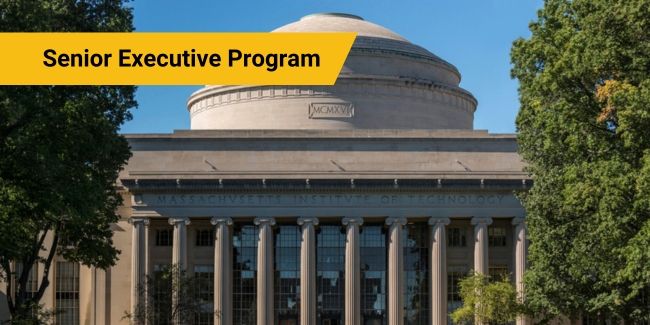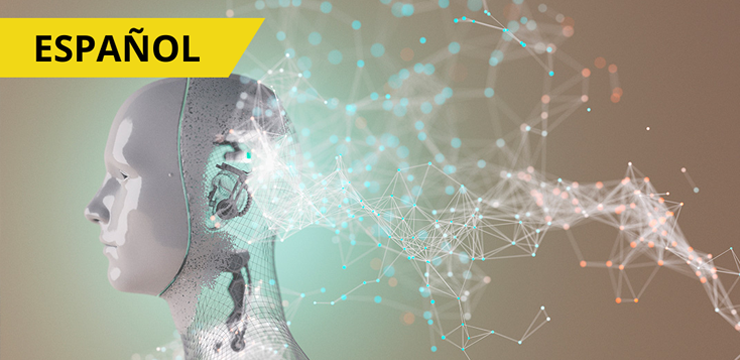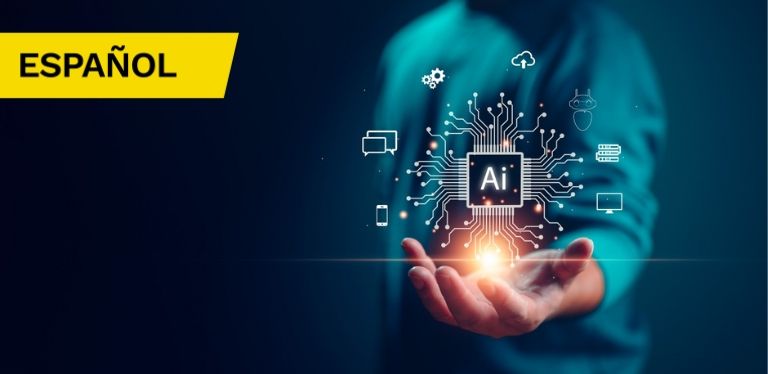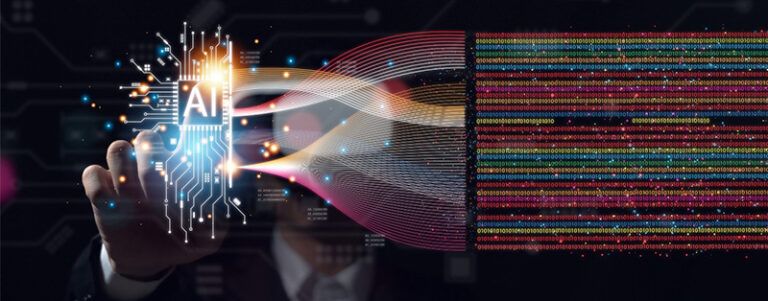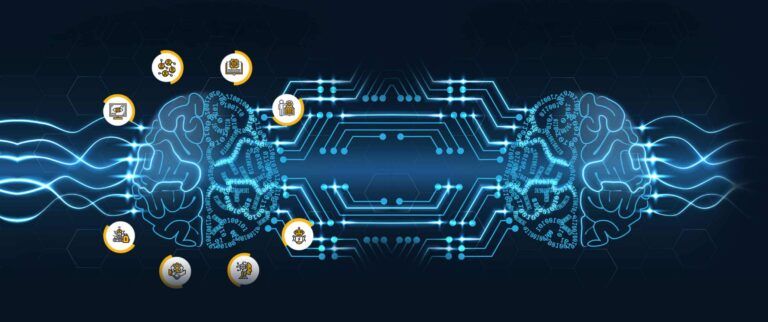How to Become an AI Engineer in 2023: A Comprehensive Guide

The rapid advancement of automation and Artificial Intelligence (AI) technology is causing significant changes in the job market. According to McKinsey, automation may impact up to 800 million professionals worldwide, causing them to seek new employment by 2030. While this may seem daunting, new opportunities are also arising, particularly in AI engineering. So if you are wondering how to become an AI engineer, here’s a comprehensive, step-by-step guide to kickstart your career in AI engineering. But before we dive into how to become an AI engineer, let’s first analyze the skills, qualifications, and career progression you’ll need to succeed in this profession.
What Does an AI Engineer Do?
An AI engineer develops and implements artificial intelligence solutions for organizations. They use their expertise to build intelligent systems that learn and adapt to changing data. Furthermore, they use machine learning algorithms and deep learning to build AI models that extract valuable business insights. These insights can then be leveraged to make impactful decisions for the organization.
Roles and Responsibilities of an AI Engineer
- Building AI models from scratch and assisting product managers and stakeholders with analysis and implementation
- Developing and maintaining AI infrastructures and product development
- Performing statistical analysis and interpreting the results to guide and optimize the company’s decision-making
- Automating the infrastructure used by the data science team
- Transforming machine learning models into APIs that can be integrated with other applications
- Training and retraining systems when necessary
- Running AI and machine learning experiments and tests
- Collaborating and coordinating tasks with other teams to promote AI adoption and best practices
ALSO READ: Is There a Demand for AI Engineers? Can You Make it a Successful Career?
What Skills Should an AI Engineer Have?
Professionals aspiring to become AI engineers should possess the following skills:
- Expertise in programming languages such as Python, R, Java, Scala, TypeScript, and C++
- Extensive knowledge of probability, statistics, calculus, and linear algebra
- Understanding of AI models such as Naive Bayes, linear discriminant analysis, Hidden Markov, and Gaussian mixture models
- Familiarity with big data technologies such as Hadoop, Apache Spark, Cassandra, and MongoDB
- Proficiency in machine learning algorithms and frameworks such as KNN, linear regression, Naive Bayes, Keras, PyTorch, and Theano
- Strong communication skills
- Problem-solving and decision-making abilities
- Critical thinking skills
- Strong leadership skills
What is the Average Salary for an AI Engineer?
As organizations adopt AI, the demand for skilled AI engineers also increases. The U.S. Bureau of Labor Statistics projects job growth of 21% for this category from 2021 to 2031, indicating a high demand for AI engineers.Furthermore, according to Glassdoor, the average annual salary for an AI engineer in the U.S. is $105,446. Additionally, tech giants such as Google, Apple, IBM, Tesla, and Microsoft are among the top companies hiring AI engineers, making it a highly lucrative career opportunity.
How to Become an AI Engineer
 Step 1: Get the Education Needed
Step 1: Get the Education Needed
Consider obtaining a degree in a related field, as AI engineering requires a strong educational background. Typically, AI engineers hold a bachelor’s degree in computer science, data science, mathematics, or a related discipline. While it isn’t always required, a master’s degree in these AI-related fields can prove beneficial. Besides formal education, AI engineers must be proficient in programming languages and understand applied mathematics and algorithms. A degree is still the most widely-accepted criterion for recruitment as it equips you with foundational knowledge and prepares you for the role.
Step 2: Gain Hands-On Experience
Obtaining experience is critical to becoming an AI engineer. Consider applying for internships in relevant fields to get insights into the profession and prepare yourself accordingly.
Step 3: Develop Technical Skills
Once you have gained theoretical knowledge of AI, focus on developing your technical skills. This includes proficiency in tools commonly used by AI engineers, such as programming, AI models, and natural language processing.
Step 4: Consider Online Courses and Bootcamps
Consider taking a short-term intensive course to obtain the necessary credentials to become an AI engineer. Online courses and bootcamps are designed to help jump-start your career in AI. You can also explore Emeritus’ AI courses developed in collaboration with top universities.
Step 5: Build Your AI Portfolio
Your AI portfolio is a powerful way to demonstrate your skills and experience. It serves as tangible evidence of your capabilities, regardless of your experience in AI. A portfolio is essential to showcase the AI projects you’ve collaborated on, your interests, and your professional growth goals.
Step 6: Grow Your Professional Network
Networking with other professionals in the field can be greatly beneficial. You can receive valuable insights, advice, and career growth opportunities by connecting with mentors, industry experts, and colleagues. Additionally, networking can help you identify new job opportunities, gain exposure to different industries and markets, and stay up-to-date with emerging trends and best practices in your field.
Step 7: Ask Someone to Mentor You
A good mentor can be vital in shaping your career as an AI engineer. They can help you understand how to become an AI engineer and guide your career path. An experienced expert with an established career in the field can offer valuable insights and evaluate your strengths and other areas of development.
Step 8: Apply for AI Engineer Job Roles
 Once you have completed the above steps on how to become an AI engineer, start applying for AI engineering jobs. This will allow you to showcase your competencies and expertise to potential employers.Now that you know how to become an AI engineer, here are some of the most frequently asked questions pertaining to this field.
Once you have completed the above steps on how to become an AI engineer, start applying for AI engineering jobs. This will allow you to showcase your competencies and expertise to potential employers.Now that you know how to become an AI engineer, here are some of the most frequently asked questions pertaining to this field.
ALSO READ: How Top Applications of AI are Transforming Different Sectors
Frequently Asked Questions
What Kind of Education or Training is Required to Become an AI Engineer?
AI engineers typically have a bachelor’s degree in an AI-related field such as computer science, data science, mathematics, or a related field. A master’s degree in these fields can be beneficial but isn’t required. Along with formal education, AI engineers must be proficient in programming languages and understand applied mathematics and algorithms.
What Industries are Hiring AI Engineers?
AI engineers are in high demand across various industries, such as healthcare, retail, e-commerce, food, entertainment, gaming, and manufacturing.
How Can Someone Stand Out in the Job Market as an AI Engineer?
Building a solid educational foundation in mathematics, statistics, linear algebra, and calculus is essential to set yourself apart in the job market as an AI engineer. Becoming proficient in programming, building a strong skill set, and creating a portfolio is also critical. Additionally, online AI courses to upskill and earn certifications can enhance your profile and help you stand out in the competitive job market.
ALSO READ: The Ultimate 2023 Data Science Roadmap: A 6-Step Guide to Success We hope this guide on how to become an AI engineer has helped you create a career plan to achieve your dreams. Remember, the path to becoming an AI engineer requires strong foundational knowledge and continuous upskilling and reskilling. Following the steps outlined in this guide, you can future-proof your career and remain competitive in the job market. Online courses are a valuable resource to help you enhance your skills and gain a competitive edge. Consider exploring these artificial intelligence courses offered by Emeritus to expand your knowledge and expertise further.
By Krati Joshi
Write to us at content@emeritus.org




























